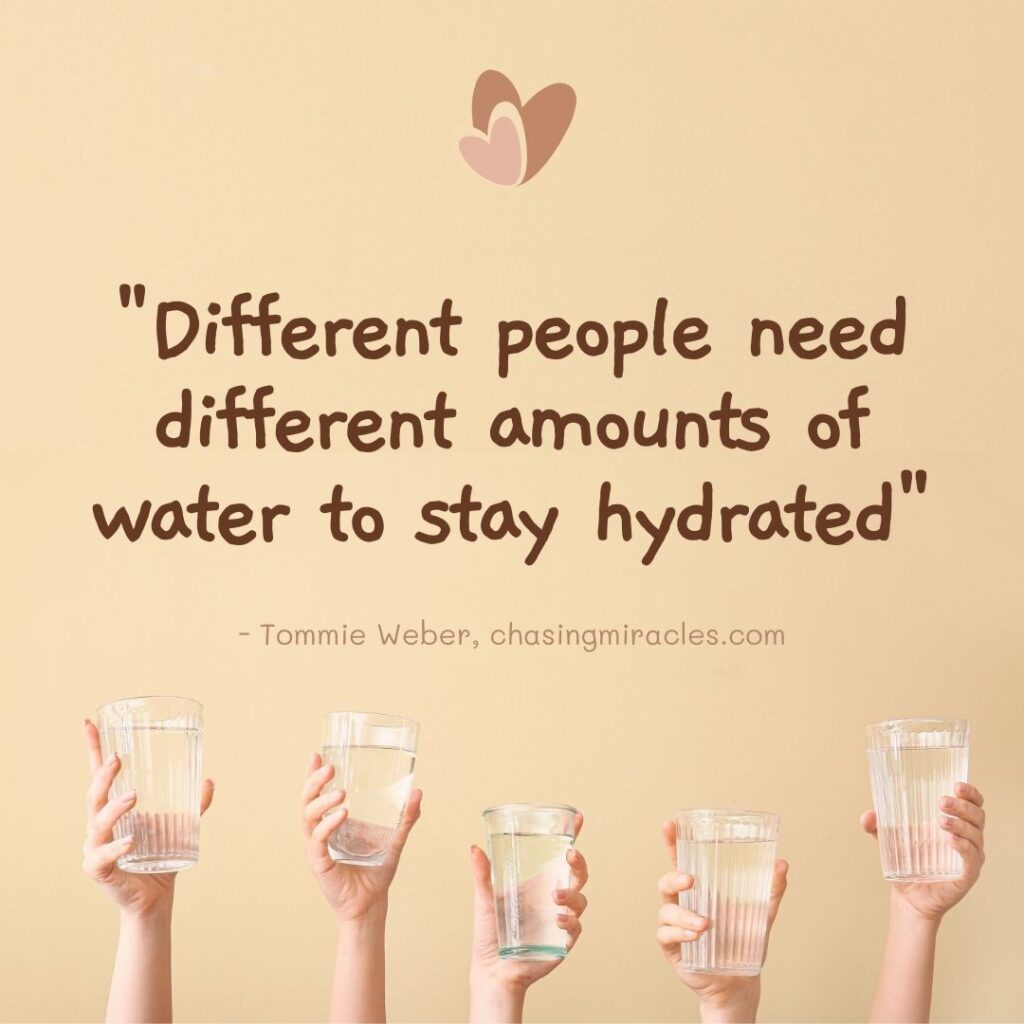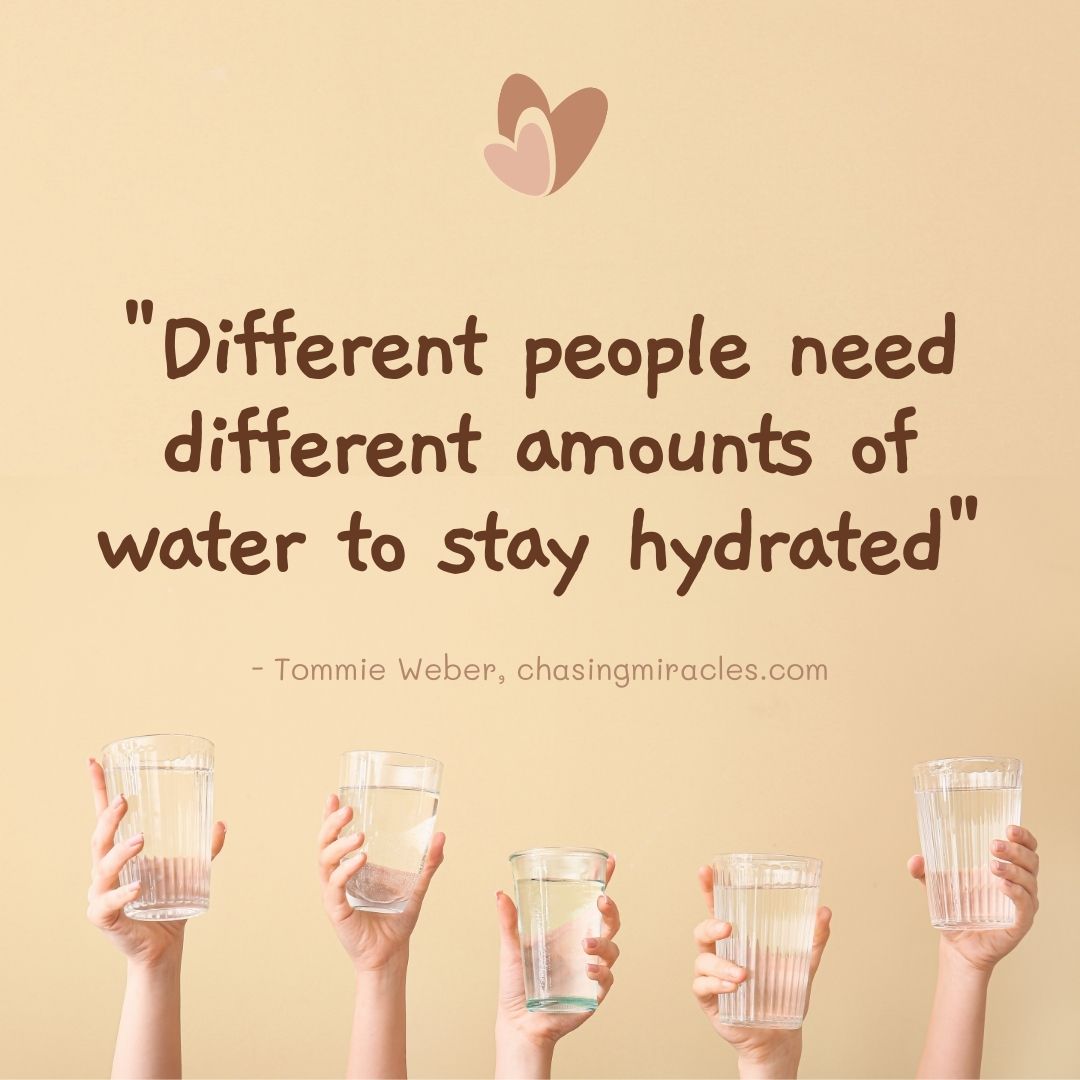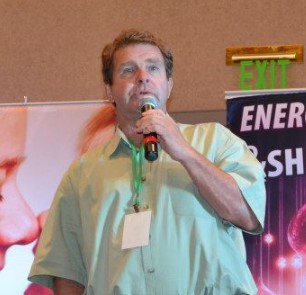
Your body uses water to maintain its temperature, remove waste, and lubricate your joints. Water is needed for overall good health.Your body depends on water to survive. Every cell, tissue, and organ in your body needs water to work properly.
Drinking water daily is a must. Most people have been told they should drink 6 to 8, 8-ounce glasses of water each day. That’s a reasonable goal. However, different people need different amounts of water to stay hydrated. Most healthy people can stay well hydrated by drinking water and other fluids whenever they feel thirsty. For some people, fewer than 8 glasses may be enough. Other people may need more than 8 glasses each day. The way to determine this is to chart out how you feel. Another easy marker is to take your IDEAL weight, not your current weight, divide that in half and convert to ounces. For example, if your goal weight is 160 pounds, divide that by 2 to reach 80 and convert that into ounces. You should be drinking 80 ounces of water per day.
If you don’t drink enough water, you may become dehydrated.
When you become dehydrated, your body doesn’t have enough fluid to operate properly.
Your urine can be an indicator if you’re dehydrated. If it’s colorless or light yellow, you’re well hydrated. If your urine is a dark yellow or amber color, you may be dehydrated.
There are other signs that can signal you may be dehydrated. All of these symptoms and more point us to “not enough hydration”. They include:
- Little or no urine.
- Urine that is darker than usual.
- Dry mouth.
- Sleepiness or fatigue.
- Extreme thirst.
- Headache.
- Confusion.
- Dizziness or lightheadedness.
- No tears when crying.
While plain water is best for staying hydrated, adding minerals to your drinking water brings your hydration to a whole new level. This study from 2017 from the journal, Biology of Sport, showed athletes who drank alkaline, low mineralized water became better hydrated in response to high-intensity interval exercise. The use of water with alkalizing properties exhibited a significant potential for hydration.
Our bodies were born with a specific amount of trace minerals. Over the years we lose these and we don’t get to replace them because of the inefficient soil that our fruits and vegetables are grown in. In some cases, the fruit and vegetables contain no efficient minerals at all. Replacing these minerals in their raw organic form is a vital part of hydration that most people today have no idea about.
Sports drinks can be helpful if you’re planning on exercising at higher than normal levels for more than an hour. They contain carbohydrates and electrolytes that can increase your energy. They help your body absorb water. However, some sports drinks are high in calories from added sugar. They also may contain high levels of sodium (salt). Check the serving size on the label. One bottle usually contains more than one serving. Some sports drinks contain caffeine, too.
Energy drinks are not the same as sports drinks. Energy drinks usually contain large amounts of caffeine. Also, they contain ingredients that overstimulate you (guarana, ginseng, or taurine). These are things your body doesn’t need. Most of these drinks are also high in added sugar. According to doctors, children and teens should avoid energy drinks.
If staying hydrated is difficult for you, here are some tips that can help:
- Keep a bottle of water with you during the day. To reduce your costs, carry a reusable water bottle and fill it with water.
- Sip your water throughout the day rather than guzzling it down all at once.
- If you don’t like the taste of plain water, try adding a slice of lemon or lime to your drink. Adding water based fruits like watermelon is also a good option.
- Drink water before, during, and after a workout.
- When you’re feeling hungry, drink water. Thirst is often confused with hunger. True hunger will not be satisfied by drinking water. Drinking water may also contribute to a healthy weight-loss plan. Drinking water can help you feel full.
- If you have trouble remembering to drink water, drink on a schedule. For example, drink water when you wake up, at breakfast, lunch, and dinner, and when you go to bed. Or, drink a small glass of water at the beginning of each hour.
- Drink water when you go to a restaurant. It will keep you hydrated, and it’s free. Bringing a Water Hydration Pack with you that is packed with minerals will also help to clean the water that they often serve in restaurants.
Some people are at higher risk of dehydration, including people who exercise at a high intensity or in hot weather for too long, have certain medical conditions such as kidney stones, bladder infection, are sick with fever, vomiting, diarrhea, are pregnant or breastfeeding, are trying to lose weight, or aren’t able to get enough fluids during the day. Older adults are also at higher risk. As you get older, your brain may not be able to sense dehydration. It doesn’t send signals for thirst.
Note that water makes up more than half of your body weight. You lose water each day when you go to the bathroom, sweat, and even when you breathe. You lose water even faster when the weather is really hot, when you’re physically active, or if you have a fever. Vomiting and diarrhea can also lead to rapid water loss. Be sure to actively drink plenty of water to avoid becoming dehydrated.


